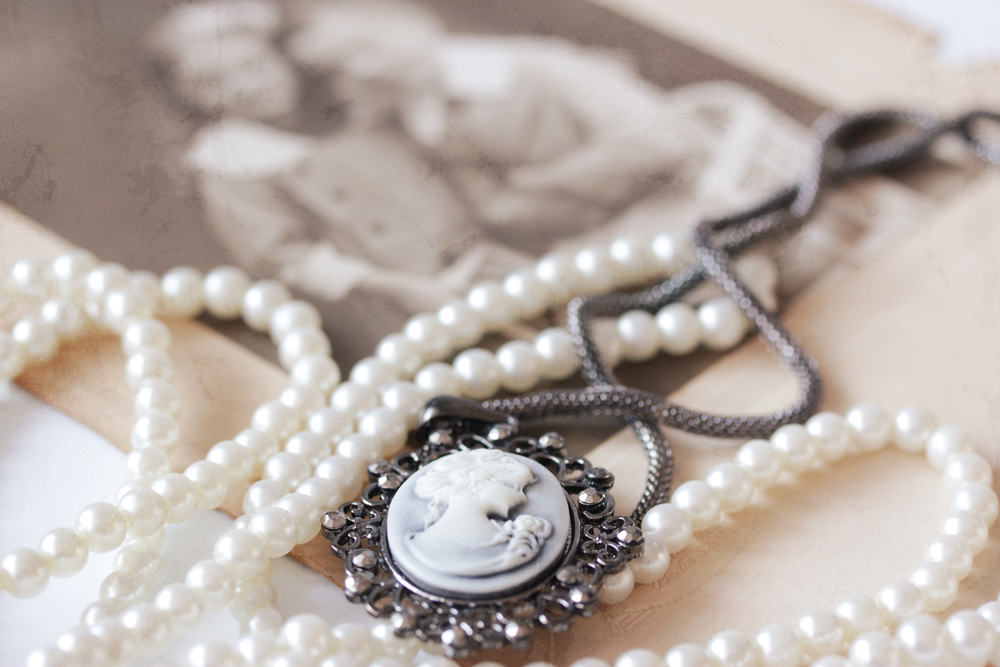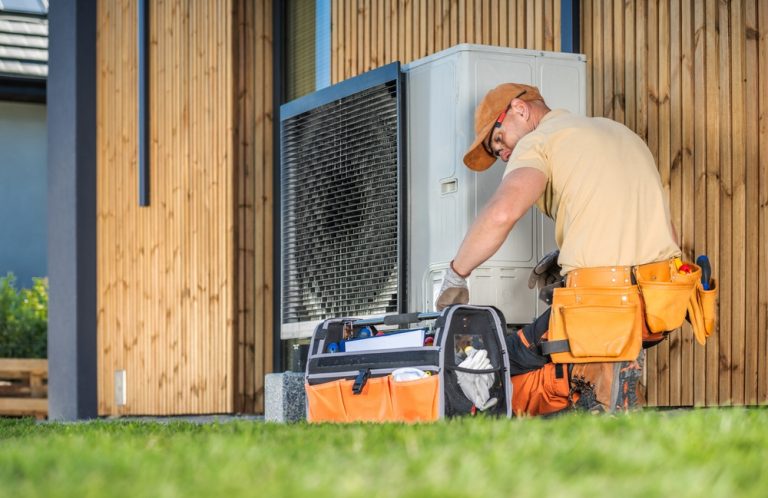Current or future retirees, do not sell these assets!
If your birth year is between 1946 to 1964, you belong to the influential baby boomer generation, and you’ve probably retired or are about to become a retiree. This milestone marks the culmination of decades of dedication and hard work. After years and years of contributing to the workforce, navigating economic shifts, and prioritizing savings, you’ve likely managed to save some money or acquire some valuable assets, a common and commendable achievement for many in your generation.
If that’s the case, good for you! The journey was long, but the reward is a portfolio you can be proud of. The value of those assets or investments has probably increased significantly over the years, so what better time than retirement to reap the benefits of all that hard work. A logical, and very tempting, step would be to sell, take the resulting lump sum of cash, and fund a comfortable, worry-free existence for the rest of your life. But is this immediate gratification truly helpful in the long term? Liquidating your life’s financial work might fund a few cruises or a new car, but it could leave you vulnerable to the very unpredictability you’re trying to escape.
On this topic, financial experts agree to disagree, as every individual’s situation is unique. That’s because life can be unpredictable, even and especially during retirement. There are all sorts of challenges and unforeseen costs that have to be paid, like escalating medical bills, long-term care needs, or urgent home modifications for aging in place. Selling some of your assets might seem like the only way to solve many of these problems. But so is keeping them. A well-preserved asset can provide a continuous income stream that often proves more valuable than a one-time cash-out. Here’s what assets financial specialists warn baby boomers against selling, for both their long-term financial and emotional stability.

1. Family home
After their children have grown up and moved out, many retirees find themselves experiencing the “empty nest” syndrome, living in a place that’s way too big for their current needs. The upkeep, property taxes, and maintenance can feel burdensome. A sensible decision might be to sell the large family home and move to a smaller, more manageable house or condo. A smart decision, however, could be to explore alternatives that retain this valuable asset. Consider downsizing your living space within the home and renting the remaining rooms or even converting a portion into a separate apartment. This can generate a steady, reliable income stream to supplement your retirement funds.
Ultimately, it’s a good move to own a property, as its value will surely increase in time, acting as a powerful hedge against inflation. More than that, the family home is often a bastion of priceless memories and emotional comfort. It’s the backdrop to decades of your life. Beyond its financial worth, you can leave it to your loved ones when you’re gone, providing them not just with a significant inheritance but with a tangible piece of their family history and a potential cornerstone for their own future.
See also: 9 Benefit Programs for Seniors to Lower Their Expenses
2. Real estate investments
If you’ve been savvy enough to invest in real estate beyond your primary residence, you can rest assured that your retirement years will look better for it. Whether it’s a rental condo, a duplex, or a small commercial building, such an asset can bring you a constant and inflation-resistant income. It is a tangible investment that appreciates in time, slowly but surely. Therefore, before deciding to sell for a one-time profit, think carefully about the risks of losing that recurring revenue versus the rewards of a lump sum payment. That monthly rental check can be a lifeline that covers regular expenses without you ever having to touch your principal investments.
Of course, being a landlord involves work, but you can delegate these responsibilities. Hiring a professional property management company can handle tenant screening, rent collection, and maintenance calls, turning your real estate holding into a truly passive investment. This allows you to enjoy the financial benefits without the daily hassles, making it an ideal asset to hold throughout your retirement.
Check this out: These 5 Purchases Pay for Themselves in Less Than a Year
3. Collectibles and antiques
Antiques and collectibles—like rare coins, stamps, vintage watches, or first-edition books—are also a type of asset which can appreciate significantly over time. Their value is often uncorrelated with the stock market, making them an excellent diversification tool. Apart from increasing in value, such items may be incredibly important from a sentimental point of view. They represent a passion, a hobby, or a connection to a different era, and selling them can feel like selling a part of your own history.
Before you even consider a sale, and certainly before you retire, make sure all your collectibles and antique items are professionally evaluated and appraised. This way you can have a clear, documented idea of their financial value, which is crucial for both insurance purposes and estate planning. To make sure the appraisal is accurate and unbiased, you can go to reputable auction houses like Heritage Auctions or specialized appraisers in your item’s category, where the evaluation and authentication services are often free of charge or offered at a reasonable rate. This knowledge allows you to make informed decisions rather than emotional ones.
4. Stocks and bonds
If you’ve been diligently saving or investing in the market so that you can have a comfortable life in retirement, you deserve a good job. If you’ve built a solid portfolio of stocks and bonds, just because you’re retiring, does not mean you should sell them all off. On the contrary, retirement is the time to shift your strategy, not abandon it entirely. Instead of accumulating, you now move to a distribution phase. Hold on to your quality investments, as they can become a steady and constant means of revenue when you need it the most: in retirement, when you’re living on a fixed income. Dividend-paying stocks, for example, can provide a regular paycheck, while a well-balanced portfolio continues to grow.
Selling everything at once exposes you to massive market risk; if you happen to sell during a downturn, you lock in your losses permanently. By staying invested and withdrawing funds strategically (following principles like the 4% rule), you allow your portfolio to recover from slumps and continue generating returns. Not to mention, you can leave a well-managed and growing portfolio to your children, providing them significant financial support even after you won’t be with them anymore.
5. Insurance policies
If you suffer from unexpected financial problems, the cash value in a whole life insurance policy can seem like a tempting source of funds. You may be able to find a company to take over your life insurance payments in what is called a “life settlement.” This sort of move will also give them absolute rights over the death benefits provided by the insurance after your death. This means your heirs, for whom you originally bought the policy, will not receive anything. You would be sacrificing their long-term security for your short-term needs.
Rather than give up all your hard-earned benefits, explore the features within your policy first. Many policies allow you to take a loan against the cash value at a reasonable interest rate, or even use the cash value to pay the premiums for a period of time, keeping the policy in force. You might also be able to reduce the coverage amount to lower your premiums. Try to find these loopholes or other features in your insurance policy that might help you keep it and its essential benefits intact for your loved ones.
6. Pension plans
Another secure stream of revenue, and one that is becoming increasingly rare, is your pension. It is specifically designed to help you live a comfortable life in retirement, provided that you keep it instead of selling it for a lump sum. Some companies may offer to buy out your pension, giving you one large payment upfront. While tempting, this decision transfers all the risk to you. Experts agree that pensions represent an important source of income after you stop working because they protect you from market risk and longevity risk (the risk of outliving your money). So why not make the most of this powerful financial tool?
To make sure everything is in order and you are fully covered during retirement, carefully compare the lump sum and annuity options. Calculate how long the lump sum would have to last to equal the total payout of the annuity. The guaranteed monthly check for life often proves to be the smarter, more secure choice. Also, verify the legal frameworks and conditions for pensions, and the financial health of the Pension Benefit Guaranty Corporation (PBGC) that insures it, so that you can enjoy all their benefits with peace of mind.
7. Gold and precious metals
If there’s one thing that inflation cannot touch, or at least not to the extent that it erodes cash and other assets, it’s gold and precious metals. For centuries, these have been the ultimate store of value. You cannot go wrong with these ones as a component of a diversified portfolio. It is advisable to own such metals as they can be quite helpful in times of economic turmoil or currency devaluation, acting as a form of financial insurance against the unknown. They provide stability when stocks and bonds might be volatile.
If you have been wise enough to acquire gold or other precious metals, don’t sell them in hopes of making extra money for retirement. That isn’t their primary purpose. Instead, hold on to them as a long-term safeguard for your wealth and store them in a secure space, such as a bank’s safe deposit box or a third-party depository specializing in precious metals. Don’t forget to also insure these assets properly, as a standard homeowner’s policy may have limits on coverage for bullion.
8. Art and memorabilia
Much like collectibles, fine art and significant memorabilia can also be considered safety items, as they are also not directly impacted by the daily fluctuations of the stock market and inflation. They are tangible assets whose value is determined by rarity, provenance, and demand. They can represent a source of revenue at some point, even more so with their value increasing over time, but their greatest benefit may be non-financial. A beautiful painting brings daily joy, while a piece of historical memorabilia connects you to a passion.
Experts recommend keeping your art and memorabilia with you. These are often illiquid assets, meaning they can be difficult and slow to sell, often involving high commissions from auction houses or galleries. They aren’t a good source for quick cash. However, it’s vital to have it professionally appraised and fully insured so that you can protect your investment and make the most of it when or if the time for a strategic sale ever comes.
9. Family heirlooms
They might not hold much monetary value to the untrained eye, but family heirlooms can prove to be quite valuable in ways that money can’t measure. Apart from their profound sentimental value to you and your family, some heirlooms can turn out to be true lost treasures with a surprising market price. However, selling them might not be the best option, regardless of their financial worth. These items—a grandparent’s military medals, a piece of furniture built by an ancestor, a collection of family letters—are irreplaceable links to your heritage. If you can keep them, it’s best that you do, so that your heirs and future generations can also enjoy them and understand their family’s story.
Selling a family heirloom is an irreversible decision that can sometimes create friction and regret within a family. If you are in a financial bind, consider talking to other family members first. Someone else might be willing to purchase the item to ensure it stays within the family. Passing these items down with their stories is a powerful form of legacy.
10. Business interests
If you’ve spent your life growing your own business and now want to sell it before you retire, you might want to reconsider that exit strategy. Yes, selling the business and sailing off into the sunset might seem like a logical step to take. But holding on to your business in some capacity might prove to be a much better strategy, financially speaking, as it can secure significant ongoing revenue. An outright sale is a one-time event, but a strategic transition can pay dividends for years.
Consider a gradual succession plan. You could sell a portion of the business to key employees or a younger family member, allowing you to slowly step back from day-to-day operations while retaining an ownership stake and a stream of income. Your business can help you stay engaged and in the game on your own terms, and it can also be passed on to your heirs as a living legacy when the right time comes, preserving the enterprise you worked so hard to build.

11. Retirement accounts
The money you can get from your retirement accounts, like a 401(k) or an IRA, might come in handy during retirement. That’s what it is there for. However, cashing out the entire account in one go is almost always a mistake. An early or poorly planned withdrawal might come with certain penalties, but the biggest hit will be from income taxes. Withdrawing a large lump sum from a traditional retirement account could push you into a much higher tax bracket for that year, causing you to lose a huge portion of your savings to the IRS.
Before deciding to withdraw your money, check your options carefully. The power of these accounts is in their tax-deferred (or tax-free, for a Roth) growth. The longer the money stays invested, the more it works for you. Experts advise on keeping your money anchored to a retirement account for as long as possible. Plan for strategic, regular withdrawals to cover your expenses, rather than a single liquidation. If you don’t have a choice and need a larger sum, try to draft a detailed spending plan and stick to it so that you don’t end up penniless in your first few years of retirement.
See also: 10 Things Frugal People Never Do and Neither Should You
12. Vehicles and recreational equipment
Just because you’re retiring, does not mean you should no longer own cars or recreational equipment that bring you joy. In fact, retirement often comes with much more free time to pursue hobbies. And what better way to fill it up than roaming the country roads in an RV, sailing on the lake in your boat, or taking your classic car to a weekend show? These assets are often key components of a happy and fulfilling retirement lifestyle.
Sure, you absolutely have to take all costs into consideration, as owning and maintaining more than one vehicle or a large piece of equipment can be costly on a fixed income. Before you make a decision, either to sell or to keep, consider all aspects such as value depreciation, insurance, maintenance costs, fuel, and storage fees. A rational analysis is necessary. While selling might bring some extra income to the household, keeping them might make your retirement years more fulfilling and socially satisfying. Perhaps a compromise is possible: sell a second, less-used car but keep the RV that is central to your travel plans. The goal is to balance financial prudence with quality of life.














